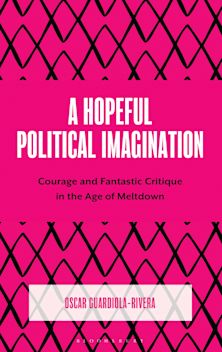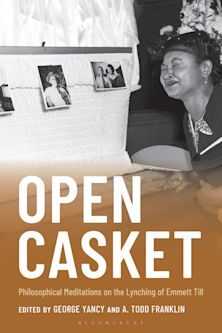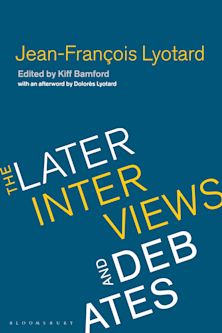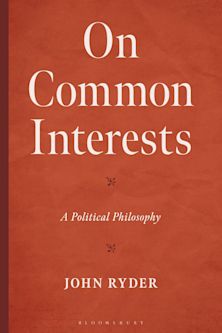- Home
- ACADEMIC
- Philosophy
- Social and Political Philosophy
- The Chickenhawk Syndrome
For information on how we process your data, read our Privacy Policy
Thank you. We will email you when this book is available to order
You must sign in to add this item to your wishlist. Please sign in or create an account
Description
In recent years, the question of war and sacrifice has been a major topic of political debate and controversy. If our country goes to war for reasons we endorse, what is our responsibility to share in its sacrifices? Does supporting a war mean serving in it? Does it mean encouraging our children to do so? Such questions have been posed by the so-called 'chickenhawk' phenomenon: pro-war leaders and their pro-war children who call on Americans to assume the burden of war and its sacrifices, but avoid those sacrifices themselves. President Bush and other architects of the Iraq conflict were the most prominent chickenhawks. Cheyney C. Ryan argues that the chickenhawk issue is not just a matter of personalities_it will remain with us for a long time even though the Bush administration has left office. Ryan poses fundamental questions of war and personal sacrifice, pointing to the basic disconnection in American politics generally between the support for war and the willingness to assume its costs, which he calls 'Alienated War.' Calling for the reinvigoration of civic involvement, this illuminating and insightful book offers both a philosophical and historical exploration of America's citizen-soldier tradition and the consequences involved in separating the citizenry from the armed forces.
Table of Contents
2 Acknowledgments
Chapter 3 Introduction: Bowling Alone, Bombing Together
Chapter 4 1. "Mr. President, When Do We Enlist?": The Reality of Alienated War
Chapter 5 2. The Rise and Fall of the Citizen-Soldier; or, Bye-Bye, Elvis
Chapter 6 3. Chickenhawk Variations
Chapter 7 4. Integrity, Reciprocity, and the Murtha Test
Chapter 8 5. "Invisible in War, Invincible in Peace": Chickee-Hawk Variations
Chapter 9 Conclusion: The Face in the Mirror
10 Bibliography
11 Index
12 About the Author
Product details
| Published | 16 May 2009 |
|---|---|
| Format | Ebook (Epub & Mobi) |
| Edition | 1st |
| Extent | 230 |
| ISBN | 9780742565050 |
| Imprint | Rowman & Littlefield Publishers |
| Publisher | Bloomsbury Publishing |
About the contributors
Reviews
-
Cheyney Ryan has written an eloquent and passionate argument about the basic responsibilities of citizens when their country goes to war: if you aren't prepared to fight it yourself, or commend fighting to your loved ones, you should not support the war. In an era where devastating attacks can be launched and executed by remote control, and no draft exists to spread the burdens of service, it is all too easy to back killing with no risk and no sacrifice. Ryan's book is a crucial philosophical examination of democratic citizenship and just war theory.
David J. Luban, Georgetown University Law Center
-
Ryan shows persuasively why someone who vigorously and publicly endorses a war and its sacrifices while diligently and successfully avoiding such sacrifices for himself and his family lacks the essential constituents of moral integrity: steadfastness, mindfulness, and forthrightness. While surveying the deep moral casualness of the decision to go to war in Iraq, Ryan names and shames enough contemporary American hypocrites and freeloaders to infuriate many culprits in both political parties. An extraordinary combination of political analysis and philosophical analysis, this study is grounded in American history and conveyed in contemporary anecdotes about shamelessness that often leave the reader unsure whether to laugh at our recent follies, weep for our future, or both. I hope this devastating book makes people angry enough to adopt the "Murtha test" it recommends.
Henry Shue, University of Oxford
-
This is a well-written book on an important topic. Recommended.
Choice Reviews
-
Many who supported our recent wars avoided the personal costs of these conflicts. Cheyney Ryan argues that now is the time for a reckoning on the question of war and personal sacrifice. This book is a direct provocation and a call for reflection. It demands that we revisit the basic questions of why we fight and how we fight-and the connection between the two. The results of our reflection and reckoning will have great consequences for our country and for the world.
Joel H. Rosenthal, president, Carnegie Council for Ethics in International Affairs



































